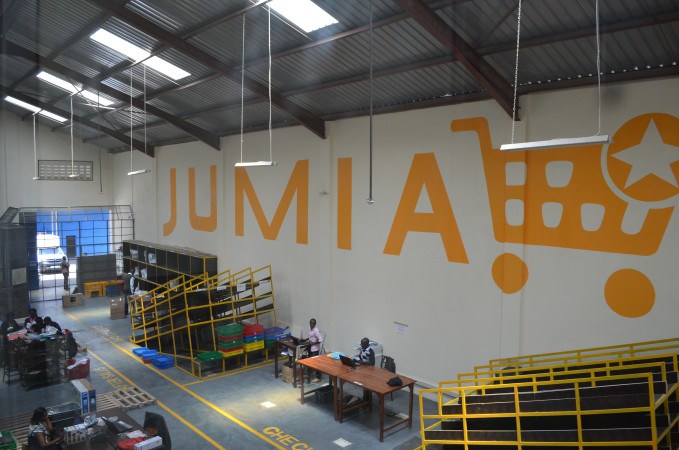

Of course, the public offering was covered extensively across several major publications across the globe for one key reason: this was the first non-African organization whose customers are in Africa that listed on the NYSE. People privy to the matter revealed that the firm offered 17.6% of its shares to the platform that is predicted to raise up to KES 21 billion for the ecommerce firm. According to TechCrunch, MasterCard Europe was the first major company to take advantage of the filing as it purchased KES 5 billion in shares.
However, this past weekend has been marked by several insights that refute the announcement that Jumia is Africa’s first startup considering the corporation’s headquarter is stationed in Europe. Africa is just where it operates, but its key business operations and important workforce are anything but African. The issue has been dismissed as PR as Jumia had fronted itself as an African firm when it became the first Africa-based startup to hit a $1 billion valuation. To this end, let’s examine if Jumia is really an African startup using the information we gathered over the weekend.
Is Jumia an African ecommerce business or does it use that moniker for PR reasons?
Well, to begin with, let’s get this out of the way: Jumia is not, and has never been an African startup. It was founded by two French nationals, Jeremy Hodara and Sacha Poignonnec, and is incorporated in Germany. The founders hold over 2 percent of the company’ shares. However, some argue that Jumia’s original founders, Kahinde and Afaedor, who are African, qualify the firm’s Africa roots. Furthermore, Jumia reports that its market exclusivity makes it African; the lion’s share of its taxes are paid in the continent, and it employs an excess of 5000 people in Africa. However, issues come up when the composition of its top management and business operations that pose diversity deficits.
According to an SEC form published on QZ, Jumia is technically a German company.
“On Dec 7 and 18, 2018, our shareholders resolved upon the change of our legal form into a Germany stock corporation (Aktiengeselleschaft) and change our company name to Jumia Technologies Limited,” reads a statement from an application form.
Furthermore, Jumia often says it is active in Africa, particularly in six nations. This does not make it an African business, so to say. The approach is used by other global businesses that operate in multiple markets, some as their primary base. Being active is such markets does not effectively them their home ground.
Several high-profile startups that operate in the continent, or were founded by Africans have not become successful because they were inherently Africa. In most cases, those founded by African natives often see sharp management or ownership shifts during expansion; venture capitalists, who are often non-African see potential, and through business politics and so forth, bring in their own management team or buy out original founders or strengthen leadership. This is the case with startups such as Andela that operate as Africa businesses when they actually are not. The issue is echoed by a tweet sent earlier by Marek Zmyslowski.
Doesn't matter how many African Founders or employees Jumia has. It's IPO and good PR as fist "African tech startup on NYSE" will bring more money to the ecosystem than all the twitter rants of "truly African" fonders from last 7years together.
— Marek Zmyslowski (@marekchinedu) April 14, 2019
Further examination of the Jumia SEC file reveals additional information such as the technology centre of the firm.
“We centrally manage our operations, allowing for efficient decision making and planning. Our global technology centre in Porto, Portugal, provided the centralized, unified technology backbone for our operation in our six regions,” reads the file.
But why?
Does Jumia’s operations that insist on its African roots come out as protective measures for customers and shareholders? Well, if a business places its interests under the guise of protecting shareholders or customers, it will have plenty of work cut out for itself. The organization will constantly have to fight for customer trust, make things up and cover tracks.
Is the listing’s announcement as an African startup a little dishonest? Probably. If a startup attempts to cover up a shortcoming, it should remember that dishonesty can (and likely will owing to the outrage that has been poured on social media platform) be picked up by the consumers. It doesn’t matter even if it is trying to fix the discrepancy.
Does Jumia think it can get away with its misleading announcements? Well, with the continuous need to big up on its offerings in ecommerce and as Africa’s Amazon, there is a fine line between marketing Jumia’s strengths and lying about them. The key in avoiding these issues is simple: be honest within to consumers. It goes a long way, considering Jumia is a unicorn.
CEO Sacha Poignonnec Comments
In an interview conducted by CNBC, Jumia’s CEO Sacha had a lot to say.
“The uniqueness of Africa is for the sellers. It is very hard to distribute its products because of infrastructural inefficiencies. Our solution was to go online as Jumia,” Sacha tells CNBC.
Asked why Jumia has its engineering station in Portugal and leadership in Germany, the CEO had the following to say:
“We are completely an African company. We operate exclusively in Africa. We have more than 5000 employees in the continent.”
However, the 5000 workers mostly work in warehouses.
“In reality, in Africa, there is not enough development and developers.”
The last statement did not augur well with a lot of people, hence the outrage that has pushed Jumia to the number one spot in Twitter trending topics.
All the developers arguing for Jumia , The Jumia CEO went on TV and told the whole western world you are not good enough, affecting your global competitiveness
— ethelcofie (@ethelcofie) April 15, 2019
Debatable? Perhaps.
Jumia’s CEO Sacha Poignonnec says says Africa doesn’t have enough developers that’s why they don’t hire them locally. 🤔 pic.twitter.com/D2wU76lawt
— DOR (@Danfar_) April 14, 2019
And has Jumia really searched for African-based talent?
I actually won't rant about this b/c those of us who are devs & work with devs know better.
I just want to ask @sachapoignonnec if they even tried looking & then they realised they are not enough. Which would mean that they hired some just that the numbers didn't add up? LOL. https://t.co/oBPtkzKsRv
— Dr. C (@chao_mbogho) April 14, 2019
Conclusion
Not an African startup.

























